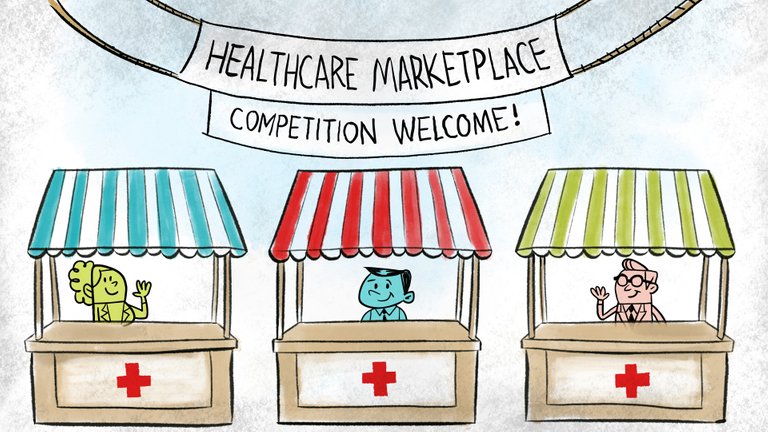[image source]

I had a lot of thoughts about this lecture, but ultimately, my main takeaway is that I think I agree with the idea that the United States ought to adopt a healthcare system that looks more similar to Singapore’s. I found the history element explaining why we have the healthcare system we see today that is third party was extremely interesting and beneficial to my understanding of our current healthcare system, and it helped me make sense of what has caused the radically expensive healthcare we have in the U.S. I also really liked the idea of competition decreasing prices of healthcare as patients would have free reign of deciding who they would like to receive services from rather than depending on what service providers were covered by their insurance plan, but there was something that was said during this explanation that I did not particularly like the idea of. This was the idea of patients potentially having to weigh price against quality. In the lecture, he used the example of one provider being cheaper but having more casualties from surgery while another was more expensive but higher quality, and patients would then calculate which they’d like to see based on this information. While I agree this is better than the current system, it makes me fearful that this would result in patients from lower socioeconomic statuses receiving poorer care. Additionally, I worry that this would be exacerbated by the size and population of the United States. I liked his comparison of cosmetic surgeries to explain how we see competition in the field, but it made me wonder if competition would have the same effect for necessary procedures. For example, people who can afford cosmetic surgeries can also typically endure the travel expenses of going to another state to receive the surgery, but lower income people may not have this same luxury. When dependent on wage labor positions and already having little disposable income (even with his later proposition), workers may not be able to afford to travel to the best heart surgeon and may have to go to whoever is available near them. Would this exacerbate healthcare inequality or is there a better solution? Overall, I found Singapore’s metasave, metashield, and metafund programs extremely impressive, and I agree that on a large scale, this would be preferable to the current system. I agree that implementing a program nationally that resembles what Whole Foods and Indiana have would be much better, but I also wonder how we may decide upon the initial amount of money to “gift” to citizens given the economic inequality and current extremely high prices for healthcare. How could we account for economic inequality until competition drives down prices? If we give a too high amount then wealthier people would not have an incentive to “shop around” but if we give too little, low income people could still suffer from lack of healthcare.